|
|
|
Page Content
Biographies
| |
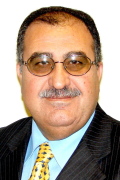 Najeeb Al-Shorbaji (Knowledge Management and Sharing, WHO) Najeeb Al-Shorbaji (Knowledge Management and Sharing, WHO)
Dr. Najeeb Al-Shorbaji has been working as Director, Department of Knowledge Management and Sharing at the World Health Organization Headquarters (WHO/HQ) in Geneva since September 2008. Prior to that he held the posts of Information Scientist, Regional Advisor for Health Information Management and Telecommunication and Coordinator for Knowledge Management and Sharing at the WHO Eastern Mediterranean Regional Office since February 1988. He is from Jordan, married and holds a PhD in Information Sciences since 1986.
Dr Al-Shorbaji's current portfolio covers WHO publishing activities and programmes, library services, knowledge networks, eHealth, knowledge translation and WHO Collaborating Centres.
Through his career in WHO, he initiated and lead a number of information and telecommunication technology projects and knowledge networks. He is a member of a number national and international professional societies and associations specialised in information management and health informatics. He has authored over 80 research papers and articles presented in various conferences and published in professional journals. |
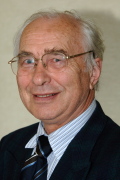 Leonid Androuchko (Rapporteur Question 14-3/2 eHealth; University of Geneva) Leonid Androuchko (Rapporteur Question 14-3/2 eHealth; University of Geneva)
Professor Leonid ANDROUCHKO is a Rapporteur on eHealth and Telemedicine in the Telecommunication Development Sector Study Group 2 of the International Telecommunication Union (ITU), Geneva, from the year 2000. His responsibilities are to conduct a study on “Telecommunication for eHealth in Developing Countries” together with representatives and experts from many countries - ITU members. He is also Professor of Telecommunication in the International University in Geneva. He is also Guest Professor of the Institute of Medical Sciences in Tokai University, Japan. |
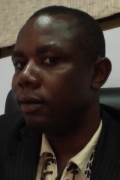 Dominic K. Atweam (Ghana Health Service, Ghana) Dominic K. Atweam (Ghana Health Service, Ghana)Health Information Systems Analyst for the Ghana Health Service (GHS), lead person for most of the E-health initiatives being implemented by the GHS. Currently overseeing the development, deployment and the implementation of district health information systems (DHIMS2) in all 170 districts in Ghana built on the DHIS2 platform. Technical advisor to the team looking at GHS e-Health systems integration (interoperability) with the district health information system (DHIMS2)
Lead persons for the development, deployment of district health planning ,analysis and reporting tool , a south south cooperation with Tanzania
Served as a technical person in developing and reviewing the GHS Enterprise Architecture (EA)
Started working for the GHS since the year 2000 as a Health Informtion Officer. |
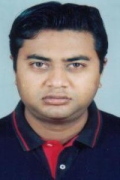 Sultan Shamiul Bashar (Management Information System, Bangladesh) Sultan Shamiul Bashar (Management Information System, Bangladesh)
Dr. Bashar (MBBS, M.Phil) has been serving as a Medical Officer in the MIS (Management Information System) of the Directorate General of Health services under the Ministry of Health & Family Welfare (MOHFW) of Bangladesh since 10th April 2011. His duties here include: supervision of development of web and mobile phone applications for the MIS-Health; facilitating workshops and seminars on regional and local eHealth related issues, hospital automation and electronic medical records; conducting ICT related training for health service personnel; serving as assistant editor of the Annual Health Bulletin by MIS-Health for MOHFW; assisting the Program Manager of “eHealth and Health Information System”, etc.
Earlier, he was a teacher in the Department of Anatomy at Shaheed Ziaur Rahman Medical College, a prominent Government Medical College in the Northern Part of the Country. He also had the opportunity to serve as a general physician in several upazila (sub-district) level government health facilities.
He is an honorary advisor of “mPower”, ( http://www.mpower-health.com/) a non-govt. company, working to introduce mobile phone technologies in health care delivery systems of developing countries. |
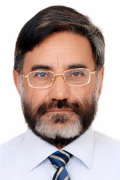 Baljit Singh Bedi (Centre for Development for Advanced Computing; Telemedicine Society of India, India) Baljit Singh Bedi (Centre for Development for Advanced Computing; Telemedicine Society of India, India)
Baljit Singh Bedi did B.Tech and M.Tech from Indian Institute of Technology (IIT), Delhi. After serving for five years in IIT, Delhi he joined Department of Information Technology (DIT), Government of India. Major contributions over the years cover conceptualizing, evolving and implementation of a number of major Schemes involving electronics and IT applications in Healthcare. As Head of Telemedicine Division, he launched a number of e-Health & Tele–health technology schemes covering many states in India. He was part of National Task Force for Telemedicine of Ministry of Health & Family Welfare (MoH&FW), Govt. of India and headed Group on Standards. He was a Member of National Knowledge Commission’s Working Group on India-Health Information Network Development. He is currently member of the National Committee on EMR Standardization set up by MoH&FW and heading its Interoperability Task Group and also of Sub group on ICT for Health Informatics of National Innovation Council He is actively involved in policy, development programs of IT in Health initiatives of MoH&FW. He is President, Telemedicine Society of India (TSI) and Executive Member of Indian Association for Medical Informatics (IAMI). Currently he is Adviser to Centre for Development of Advanced Computing. |
 Miroslav Burša (Faculty of Electrical Engineering, Czech Technical University, Czech Republic) Miroslav Burša (Faculty of Electrical Engineering, Czech Technical University, Czech Republic)
Miroslav Bursa is a full-time researcher in the Biomedical data processing group at the Gerstner Laboratory (http://www.bio.felk.cvut.cz). The main competencies of the BioDat Research group Group are: Active in applied research in biomedical informatics, Fundamental research in intelligent methods for biomedical signal processing, Application of optimization methods in data mining and development of software tools for support in biomedicine. His research area is interpretation of cardiac signal using AI (artificial intelligence) methods, namely Ant Colony Optimization, Ant Colony Clustering, Particle Swarm optimization, Neural Networks and others. He actively participates in the meetings regarding interoperability, standardization and eHealth in Czech Republic. He is also active in the area of system and network security. |
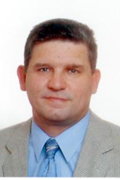 Marco Carugi (Rapporteur ITU-T Q3/13; ZTE, China) Marco Carugi (Rapporteur ITU-T Q3/13; ZTE, China)
MARCO CARUGI is Senior Expert in ZTE Corporation, R&D and Standards, where he focuses on future service and network technologies, and associated standardization.
Marco began his career in Solvay as telecommunication engineer, worked for 7 years in France Telecom/Orange Labs as research engineer on Broadband Data Services and Network Technologies, then for 8 years in Nortel CTO organization as Senior Advisor on NGN and emerging services, and joined ZTE Product R&D organization in August 2010.
Marco participates actively since 15 years in various standards organizations, and has held various leadership positions, including Rapporteur in the ITU-T NGN Focus Group, OIF Board member, co-chair of the IETF Provider Provisioned VPN Working Group. Currently, he is vice-chairman of ITU-T SG13 (Future Networks including mobile and NGN) and also acts as Rapporteur for Q.3/13 (Requirements and implementation scenarios for emerging services and capabilities in an evolving NGN).
SDP, Cloud Computing and IoT/M2M are three technical areas in which he is involved at present.
In ITU-T he is currently participating in the Internet of Things Global Standards Initiative where he leads as Rapporteur the development of technical specifications on services, requirements and capabilities, including one related to E-Health monitoring services. He has been recently appointed vice-chairman of the new ITU-T Focus Group on M2M Service Layer – which will initially focus on Healthcare – and co-chairman of its working group dealing with requirements and architectural framework of the M2M Service Layer.
Marco holds an Electronic Engineering degree in Telecommunications from University of Pisa in Italy, a M.S. in Engineering and Management of Telecommunication Networks from INT in France and a Master in International Business Development from ESSEC Business School in Paris.
|
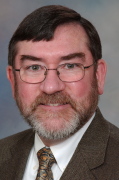 Christopher Chute (Chair, ISO TC 215) Christopher Chute (Chair, ISO TC 215)
Dr. Chute received his undergraduate and medical training at Brown University, internal medicine residency at Dartmouth, and doctoral training in Epidemiology at Harvard. He is Board Certified in Internal Medicine, and a Fellow of the American College of Physicians, the American College of Epidemiology, and the American College of Medical Informatics. He became founding Chair of Biomedical Informatics at Mayo in 1988, stepping down after 20 years in that role. He is now Professor of Medical Informatics, and is PI on a large portfolio of research including the HHS/Office of the National Coordinator (ONC) SHARP (Strategic Health IT Advanced Research Projects) on Secondary EHR Data Use, the ONC Beacon Community (Co-PI), the LexGrid projects, Mayo’s CTSA Informatics, Mayo’s Cancer Center Informatics including caBIG, and several NIH grants including one of the eMERGE centers from NGHRI, which focus upon genome wide association studies against shared phenotypes derived from electronic medical records. Dr. Chute serves as Vice Chair of the Mayo Clinic Data Governance for Health Information Technology Standards, and on Mayo’s enterprise IT Oversight Committee. He is presently Chair, ISO Health Informatics Technical Committee (ISO TC215) and Chairs the World Health Organization (WHO) ICD-11 Revision. He also serves on the Health Information Technology Standards Committee for the Office of the National Coordinator in the US DHHS, and the HL7 Advisory Board. Recently held positions include Chair of the Biomedical Computing and Health Informatics study section at NIH, Chair of the Board of the HL7/FDA/NCI/CDISC BRIDG project, on the Board of the Clinical Data Interchange Standards Consortium (CDISC), ANSI Health Information Standards Technology Panel (HITSP) Board member, Chair of the US delegation to ISO TC215 for Health Informatics, Convener of Healthcare Concept Representation WG3 within the (TC215), Co-chair of the HL7 Vocabulary Committee, Chair of the International Medical Informatics Association (IMIA) WG6 on Medical Concept Representation, American Medical Informatics Association (AMIA) Board member, and multiple other NIH biomedical informatics study sections as chair or member. |
 Catherine Chronaki (HL7 International Board of Directors) Catherine Chronaki (HL7 International Board of Directors)
Catherine E. Chronaki, a senior software engineer at FORTH-Institute of Computer Science, has engaged in eHealth projects at the regional, national, and international level since the early 90’s. Her work has addressed diverse areas in the eHealth space including: health information infrastructures employing interoperability standards for integrated care; risk assessment and consumer adoption of eHealth services; electronic health record systems supporting disease surveillance and emergency management in disaster medicine. In her projects, Catherine has been an avid supporter of interoperability recognizing that standards adoption can drive quality and innovation in healthcare. Catherine serves as Affiliate Director on the Board of HL7 International, chairs the European HL7 International Foundation Advisory Group, and represents HL7 on the eHealth Governance Initiative and the eHealth Stakeholders group established by European Commission. |
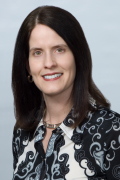 Laura De Nardis (American University, Washington DC, USA) Laura De Nardis (American University, Washington DC, USA)
Dr. Laura DeNardis is a professor in the School of Communication at American University in Washington, DC. Dr. DeNardis, both an engineer and social scientist, is a globally recognized Internet governance scholar whose research addresses Internet policy and technical design issues related to innovation and communication rights online. Her books include Opening Standards: The Global Politics of Interoperability (MIT Press 2011); Protocol Politics: The Globalization of Internet Governance (MIT Press 2009); Information Technology in Theory (Thompson 2007 with Pelin Aksoy); and a forthcoming Yale University Press book on Global Internet Governance. She is a Fellow of the Yale Information Society Project and previously served as its Executive Director. DeNardis earned a PhD in Science and Technology Studies from Virginia Tech, an MEng from Cornell University, an AB in Engineering Science from Dartmouth College, and was awarded a postdoctoral fellowship from Yale Law School. |
 Guy Dumont (University of British Columbia, Canada) Guy Dumont (University of British Columbia, Canada)
Guy A. Dumont received the Dipl. Ing. degree from ENSAM Paris, France, in 1973 and the Ph.D. degree in electrical engineering from McGill University, Montreal, QC, Canada, In 1989, after 12 years in industry, he joined the Department of Electrical and Computer Engineering, University of British Columbia, where he is a Professor, Co-founder of the Electrical and Computer Engineering in Medicine (ECEM) research group, and an Associate Member of the Department of Anesthesia. His current research interests include advanced control and signal processing with applications to patient monitoring, automated drug delivery in anesthesia, mhealth and global health. Dr. Dumont was awarded a 1979 IEEE Transactions on Automatic Control Honorable Paper Award; a 1990 UBC Killam research Prize; the IEEE Control Systems Society 1998 Control Systems Technology Award; NSERC Synergy Awards in both 1999 and 2002; the 2010 Brockhouse Canada Prize for Interdisciplinary Research in Science and Engineering; in 2011-2012, he was a UBC Peter Wall Distinguished Scholar in Residence. He was the General Chair for the 30th Annual Meeting of the IEEE Engineering in Medicine and Biology Society held in Vancouver in August 2008, and Associate Editor of the IEEE Transactions on Information Technology in Biomedicine, 2008-2010. |
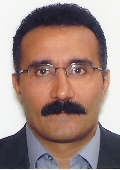 Bilel Jamoussi (Telecommunication Standardization Bureau, ITU) Bilel Jamoussi (Telecommunication Standardization Bureau, ITU)
Dr. Bilel Jamoussi is Chief of the Study Groups Department at the International Telecommunication Union Standardization Bureau in Geneva Switzerland since January 2010. He leads the ITU-T Standards Development Staff.
Before joining ITU, Bilel worked for Nortel for 15 years in Canada and then in the United States where he held several leadership positions including Strategic Standards, Advanced Technology, University Research, Software Development for routing/switching platforms, and Data Network Engineering of major international customer networks.
As Director of the Strategic Standards organization within the office of the Chief Technical Officer (CTO), Bilel provided strategic technology direction and leadership for Nortel’s involvement in more than 90 standards development organizations, forums and consortia. He also contributed to the Massachusetts Institute of Technology (MIT) one laptop per child (OLPC) initiative. Bilel is an IEEE Senior Member. He was elected to the IEEE Standards Association (IEEE-SA) Board of Governors (BOG) and the IEEE-SA Corporate Advisory Group (CAG). He served on the IEEE Standards Education Committee, the IEEE-SA Nominations and Appointments Committee, the IEEE-SA BOG International ad hoc, and the Technical Liaison from IEEE-SA to ITU-T and ITU-D.
Bilel participated in the Internet Engineering Task Force (IETF) and authored a number of Request for Comments (RFCs).
He has 22 granted and filed US patents in diverse areas: packet, optical, wireless, and quality of service.
Bilel received a BS. ’89, MS. ’92, and PhD ’95 degrees in Computer Engineering from the Pennsylvania State University, USA. |
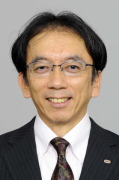 Yoshimasa Kadooka (Fujitsu, Japan) Yoshimasa Kadooka (Fujitsu, Japan)
Yoshimasa Kadooka is responsible for research leadership in the research and development of computer simulators for large scale compute system in Fujitsu Ltd. He received his first degree in Mathematics at Kumamoto University in 1980 and his MSc in Mathematics at Kyushu University in 1982 and PhD in Computational Science at Kanazawa University in 2004.
After he joined Fujitsu Ltd. in 1982, he was working on the project related to telecommunication system. From 1990 to 2001 he managed various R&D projects such as small terminal equipment, network services on the Internet and grid computing system. For the last six years he has been leading the large scale computer simulator project and doing collaborative research related to the heart simulator with the University of Tokyo. |
Masahito Kawamori (Rapporteur, Q13/16 & Q28/16, NTT, Japan)
Masahito Kawamori’s major interests are in the use of standard technologies in various convergence areas, such as e-health, e-government,etc. He has been active in the research and standardization in the telecommunication/broadcasting as well as broadband/mobile convergence. In the past he has been involved in developing several e-health related systems, utilizing multimedia, metadata (EHR) and artificial intelligence. He is currently the rapporteur of "Multimedia application for e-Health" as well as the vice-chair of ITU-T Focus Group on Audiovisual Media Accessibility. He is also the coordinator of ITU-T IPTV Global Standardization Initiative (GSI). |
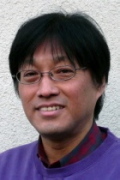 Masahiro Kuroda (NICT, Japan) Masahiro Kuroda (NICT, Japan)
Masahiro Kuroda received the M.E. degree in systems science from the Tokyo Institute of Technology, Japan, in 1980, the M.S. degree in computer science from University of California, Santa Barbara, CA, in 1989, and received the Ph.D. degree in computer science from Shizuoka University, Japan, in 2000.
He joined Mitsubishi Electric Corporation, Kamakura, Japan in 1980. Since then, he was engaged in OS/network developments, mobile network computing R&D, and cellular Java standardizations. In 2002 he joined National Institute of Information and Communications Technology (NICT) (Former name was Communications Research Laboratory, CRL) under the ministry of Internal affairs and Communications and was working on wireless network, wireless security, mobile systems, and next generation wireless systems architecture.
He is currently working on secure body-area networks for ubiquitous healthcare/medical systems and on international standardizations at the headquarters of NICT, Japan.
He is a member of the IEEE Computer Society. |
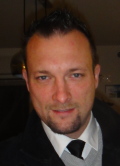 David Manset (MAAT, France) David Manset (MAAT, France)
David Manset, born in 1978, holds a M.Phil in Communication and Coordination of Multi-Agent Systems from the University of Savoie and Ecole des Mines de Saint-Etienne in France, and has engaged in a D.Phil at the University of the West of England in Bristol in the UK, specialized in Model Driven Engineering (MDE) of complex distributed computing infrastructures (Grid, HPC and Cloud) for healthcare applications.
David Manset is also CEO of maatG/GNUBILA France and Director of Biomedical Applications at GNUBILA Group. Over the last 10 years, he has contributed to European and international initiatives focusing on e-health and biomedical research. In particular, he has architected grid/cloud-based platforms for projects such as the EU FP5 MammoGrid, the EU FP6 Health-e-Child, the EU FP7 neuGRID and the EU FP7 Sim-e-Child. His work and team have been awarded in major events in the field such as the International Inventions Symposium of Geneva in 2007, The international EGEE Conference in 2007, Europe’s largest conference on Information and Communication Technologies (ICT) in 2008, and recently the international EGI Technical Forum in 2011. |
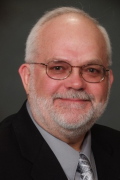 Steve Mills (Chair, IEEE-SA Standards Board) Steve Mills (Chair, IEEE-SA Standards Board)
Steve Mills has worked at Hewlett-Packard Company for over 30 years in the research and development of products for the computer and telecommunications industries. Mr. Mills is currently a Strategist in the Industry Standards Program Office where he leads HP’s participation in industry consortia and standards development organizations. Prior to moving into the Standards Program Office, he managed R&D teams responsible for mid-range market and technology research, networking products for commercial servers and the development of continuously available platforms for use in the telecommunications industry. He has actively contributed to the governance of standards development activities at the IEEE since 2001. He is currently serving as a Director of the IEEE and President of the IEEE Standards Association. |
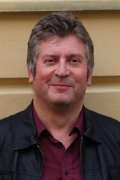 Peter Murray (IMIA) Peter Murray (IMIA)
Peter Murray is a registered nurse, an educator and a health informatician. He is currently CEO of IMIA, the International Medical Informatics Association. He started working in the health services (NHS) in the United Kingdom 30 years ago as a coronary/cardiac care nurse, before moving into nurse education. In parallel, he became involved in distance and online education, and in health and nursing informatics. He has previously worked for The Open University in the UK, developing distance and online educational materials for nurses and other health professionals, and has taught graduate level health informatics courses in the UK and South Africa. He is a Fellow and Chartered Information Technology Professional of the British Computer Society. His current research interests include using social media for virtual engagement with health informatics events; exploring wider social media use in all areas of individual and organisational use in health and care; use of free/libre and open source software, and use of ehealth and mhealth applications. |
 Nosa Orobaton (John Snow Institute) Nosa Orobaton (John Snow Institute)
Dr. Nosa Orobaton is Senior Advisor on Global Health at John Snow, Inc, a leading US health consulting firm working in 85 countries. He helps to forge alliances on international standards for improved health information systems (HIS) in low and middle income countries. He is currently facilitating an initiative with the United States Agency for International Development, several countries including the Government of South Africa on data management standards in HIS. Between 2007 and 2011, as Deputy Executive Director of WHO Health Metrics Network he was responsible for driving a standards-based approach for governments to appraise investment opportunities for strengthening country HIS. He co-authored an influential white paper on the use of Enterprise Architecture methodology to typify country HIS.
From 2006-2007, Dr. Orobaton served as Director of Operations for The Global Fund to Fight AIDS, TB and Malaria, and oversaw a $7.5 billion portfolio of grants to145 countries, with substantial financing for HIS. Dr. Orobaton is a member of the Technical Advisory Group of the Routine Health Information Network (RHINO) and WHO Health Information Reference Group (HIRG).
A member of the Phi Kappa Phi Honor Society and a Paul Harris Fellow of Rotary International, Dr. Orobaton was awarded a gold medal for service in 1983 from the President of Nigeria. He has a medical degree from University of Ibadan, Nigeria, a doctorate in public health from the Johns Hopkins University, USA, and an MBA from University of Maryland University College, USA. |
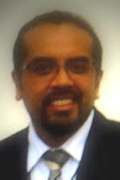 Adrian Pacheco (CENETEC, Ministry of Health, Mexico) Adrian Pacheco (CENETEC, Ministry of Health, Mexico)
Adrian Pacheco Lopez, Biomedical engineer from Universidad Autonoma de Mexico. Master on Telemedicine from Universidad Oberta de Catalunya. Director of Telehealth at CENETEC, National Center of Health Technology Excellence, part of the Health Ministry. Professor of Telemedicine at Benemerita University of Puebla Mexico. President of the Mexican Asociation of Medical Informatics. Collaborating with several institutions to implement e health programs, mainly telehealth services. He had been professor of digital design at Universidad Tecnologica de Mexico and work in telemedicine programs in the rural area inMexico as a technical coordinator. |
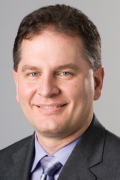 Chuck Parker (Executive Director, Continua) Chuck Parker (Executive Director, Continua)
Charles (Chuck) Parker is the Executive Director of the Continua Health Alliance – a membership-driven company focused on developing an eco-system of interoperable personal health devices. Through working with Standards bodies and industry experts, Continua publishes certification standards built upon international criteria from IEEE, HL7, Bluetooth, USB, and others. Chuck leads the many workgroups and day-to-day operations of the Alliance.
Mr. Parker has over 20 years of experience in healthcare technology, policy, and the strategic design of evaluation and measurement strategies. He has led national programs for practice transformation and has served on national committees for assessing adoption requirements.
Mr. Parker holds a Master of Science degree in Healthcare Informatics from Northeastern University. He earned his BA in Communication Studies and Business Management at Texas Tech University in Lubbock. |
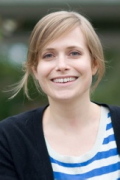 Beth Payne (University of British Columbia, Canada) Beth Payne (University of British Columbia, Canada)
Beth is currently completing her PhD at the University of British Columbia in Clinical Epidemiology. Her research interests focus on development, validation and implementation of clinical prediction models to improve medical care. She has a particular interest in the development of innovative decision aids as a mode of task-shifting maternity care in low-resourced settings. In 2011 she received the Child and Family Research Institute award for Outstanding Achievement as a Master’s student. For the past five years she has managed the International PIERS (Pre-eclampsia Integrated Estimate of RiSk for mothers) project, which is a collaborative research project involving 15 Academic Medical centres worldwide. The goal of the PIERS project is to develop and validate a clinical prediction model for use in women with pre-eclampsia, in order to reduce the life-ending and altering consequences of this disorder. |
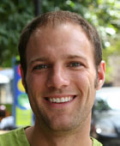 Jonathan Payne (mHealth Alliance) Jonathan Payne (mHealth Alliance)
Jonathan is an engineer turned public health practitioner applying information and communication technologies to health delivery challenges in the developing world. He has worked and traveled in over 30 countries, using mobile phones to facilitate antenatal and postpartum care in rural India or researching electronic health record systems in HIV clinics in Kenya. Jonathan is working with the mHealth Alliance to launch the global mHealth Standards & Interoperability Working Group to improve alignment and adoption standards that support the scale of mHealth systems. Jonathan is also the Director of the Maternal Concept Lab and the mHealth Coordinator for Partners In Health. He previously worked with D-tree International building decision support protocols for community health workers in India, Tanzania and Malawi. Jonathan received his MS at the Harvard School of Public Health and BE from Vanderbilt University. |
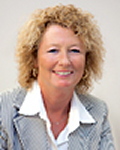 Gisele Roesems (ICT for Health, DG Information Society, European Commission) Gisele Roesems (ICT for Health, DG Information Society, European Commission)
Gisele Roesems is Deputy Head of Unit "ICT for Health" within the Information Society and Media Directorate General of the European Commission. A civil engineer in computer sciences (University of Leuven (B)) she started her career as a system engineer in the telecommunication sector and later in the automotive industry. She joined the EC in 1994 as a scientific officer in the domain of Software technologies in the Esprit research programme and moved on to the areas Micro/Nanosystems and Nanoelectronics in the IST programme. |
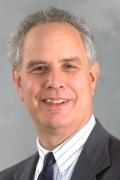 Elliot Sloane (Center for Healthcare Information Research and Policy, USA) Elliot Sloane (Center for Healthcare Information Research and Policy, USA)
Elliot Sloane has a dual background in biomedical engineering and information systems. He has spent nearly 4 decades in both areas simultaneously facilitating their convergence to improve healthcare. He runs a non-profit agency, CHIRP, focusing on eHealth innovations for elders and other underserved communities. Dr. Sloane has been a health technology adviser, educator, and consultant to PAHO/WHO on related topics for about 26 years, and he has worked with the US government agencies like the Food and Drug Administration and US Office of the National Coordinator of Health IT for decades as well. Sloane is voluntary co-chair of the IHE International organization, which facilitates secure and reliable electronic health record and medical and personal health device interoperability worldwide using well known primary standards from organizations like IEEE, ISO, HL7, SNOMED, and others. IHE was founded in 1997, and has developed and provided one of the few tested and implemented international health data interoperability frameworks at no charge to users or implementers. All are downloadable at www.IHE.net. Participation in IHE is voluntary, and membership is free. Dr. Sloane helped co-found the IHE Patient Care Device Domain in 2005. He has helps IHE collaborate with the Continua Health Alliance and others to enable eHealth products that can exchange data with many IHE-compatible EMR systems and devices. |
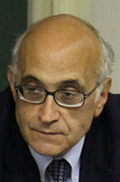 Basile Spyropoulos (Technological Education Institute of Athens, Greece) Basile Spyropoulos (Technological Education Institute of Athens, Greece)
Born in Thessaloniki, Greece (1953), B.Sc.-Degree, Univ. Athens/Greece (1976) and Ph.D.-Degree in Physics (Dr.rer.nat.), Universities Heidelberg/Saarland, Germany (1982). He held positions in CERN, Geneva/Switzerland, Radiology and Clinical Chemistry Institutes, Univ. Heidelberg/Germany, Head of BME-Department, Public Hospital-Construction Authority, Athens/Greece, and Patent-Examiner, European Patent Office, Munich/Germany.
Since 1987, full Professor of Biomedical Technology (BMT), Medical Instrumentation Technology Department, of the Technological Education Institute (TEI) of Athens/Greece. He served or still serves as Visiting Professor in the National School of Public Health, Athens, University of Patras Medical School, University of Crete, National School of Public Administration, Athens, Greek Army Medical Corps Applications’ School, Athens, Department of Informatics, University of Athens, all in Greece and in Medical School, University of Heidelberg/Germany, Technical University of Ilmenau/Germany, National Nuclear and High-Energy Physics Institute (NIKHEF), Amsterdam/Netherlands, Accelerator-Physics Laboratory, University of Illinois at Urbana-Champaign, IL/USA, and Harvard Medical School, Boston MA/USA.
Over 300 contributions in refereed International/National Scientific Journals and Conferences and 8 Volumes of Lecture-Notes and extensive E-class material in Healthcare-ICT, BMT, Hospital Management, Medical Decision Support and Radiation Protection. |
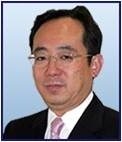 Shigeru Tomita (NTT DATA, Japan) Shigeru Tomita (NTT DATA, Japan)
Mr. Tomita Shigeru has been working at Healthcare sector since he entered NTTDATA Corporation. He is an expert in the field of IT and Medical & Healthcare systems. Currently, he is leading Strategy Planning office where is developing a new business strategy in the field of healthcare which includes global expansion. He is also a Management chair of Japanese Association of Healthcare Information Systems Industry, Management chair of Japanese Association of Healthcare Information Systems Industry. |
|
| |
|
|
|